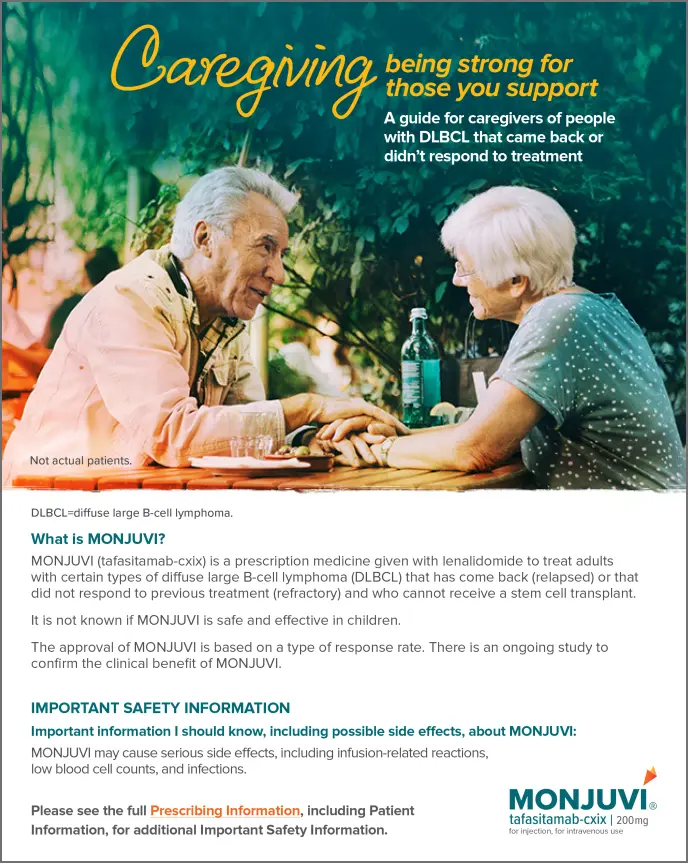The role of a caregiver
The role of a caregiver is different for everyone, depending upon your personal relationship and the needs of the person for whom you’re caring. Sometimes it’s as simple as saying “I’m here for you.” Those words and the intention behind them are very comforting for someone with cancer to hear.
It’s also good to discuss and agree on what your role will be and how you can help.
Here are some things you might do in your role as a caregiver:
Help with treatment
- Assisting with medications
- Helping to recognize side effects and discussing them with the healthcare team
- Keeping track of appointments
- Providing transportation

Communication and decision making
- Keeping other family members and friends informed
- Talking with the treatment team during visits and taking notes
- Helping to support discussion about stopping, starting, or continuing treatment

Around the home
- Household chores
- Preparing food
- Paying bills
- Caring for pets
- Cleaning
Talking to someone who’s living with DLBCL
One of the most important parts of being a caregiver is communication. The American Cancer Society suggests keeping these points in mind when you’re caring for a person who has cancer:
- Help them live as normal a life as possible.
- Encourage them to share feelings, and support their efforts to share.
- Let them know you’re available, but don’t press issues.
- Remember that people communicate in different ways.
- Take cues from the person you’re caring for.
- Be realistic and flexible about what you hope to talk about and agree on.
- Respect the need to be alone. Sometimes we all need time alone—even you.

How to prepare on infusion days
If the person you’re caring for is receiving MONJUVI for the first time, here are some suggestions to help make an infusion day smoother.

1. Eat a healthy breakfast
- Eating a hearty meal prior to the infusion can help provide energy throughout the infusion process.

2. Set aside time
- The first infusion will take about 1½ to 2½ hours. The infusion time may vary if the healthcare team needs to make adjustments during treatment.
- After that, the infusion time will be between 90 minutes and 2 hours.
- The healthcare team may need to delay or completely stop treatment with MONJUVI if there are severe side effects.
- The healthcare provider will give medicines before each infusion to decrease the chance of infusion reactions. If there are no reactions to treatment, these medications may not be needed for future infusions.
- Lab work may be done before or during the appointment, which may impact the length of the visit.

3. Wear warm and comfortable clothing
- Layered, loose-fitting clothing can help the person receiving treatment adjust to the temperature in the infusion room.

4. Stay occupied
- Bring reading materials, headphones with a phone and/or tablet, crossword puzzles, or anything else to help pass the time.
Support for caregivers
It’s important to take care of yourself by eating healthy, making sure to exercise, and seeking out social opportunities that you enjoy. Talk to your doctor about what’s right for you before you begin a new diet or exercise plan.
Below are additional sources of support to consider if you need them.
The organizations listed are independent groups and societies whose names are provided as a service and should not be considered an endorsement of these organizations or imply an endorsement of these organizations by Incyte.
American Cancer Society
Talk with a nurse or social worker to learn about services in your area.
Watch videos on how to cope with being a caregiver
American Cancer Survivors Network
An online connection where patients and caregivers can join chatrooms and build their own support networks
Medline Plus
Patient Empowerment Network
Download the Caregiver Brochure to learn more about providing care to people whose DLBCL came back or didn’t respond to treatment.


